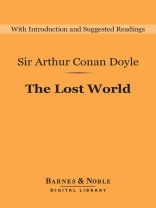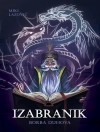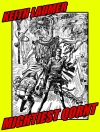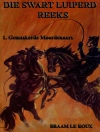This edition includes a modern introduction and a list of suggested further reading.
Professor Challenger’s claims of dinosaurs living in twentieth-century South America may seem outlandish, but even skeptics become believers in
The Lost World (1912). Part adventure story, part science fiction,
The Lost World generates motifs and characters that have such long-lasting popular appeal that they constantly reappear in today’s fiction, film, and television.
O autorze
Sir Arthur Conan Doyle was born in Edinburgh in 1859. After nine years in Jesuit schools, he went to Edinburgh University, receiving a degree in medicine in 1881. He then became an eye specialist in Southsea, with a distressing lack of success. Hoping to augment his income, he wrote his first story, A Study in Scarlet. His detective, Sherlock Holmes, was modeled in part after Dr. Joseph Bell of the Edinburgh Infirmary, a man with spectacular powers of observation, analysis, and inference. Conan Doyle may have been influenced also by his admiration for the neat plots of Gaboriau and for Poe’s detective, M. Dupin. After several rejections, the story was sold to a British publisher for £25, and thus was born the world’s best-known and most-loved fictional detective. Fifty-nine more Sherlock Holmes adventures followed.
Once, wearying of Holmes, his creator killed him off, but was forced by popular demand to resurrect him. Sir Arthur — he had been knighted for this defense of the British cause in his The Great Boer War — became an ardent Spiritualist after the death of his son Kingsley, who had been wounded at the Somme in World War I. Sir Arthur Conan Doyle died in Sussex in 1930.
Author biography courtesy of Penguin Group (USA).












